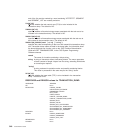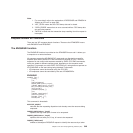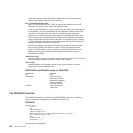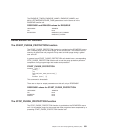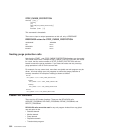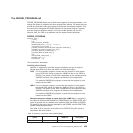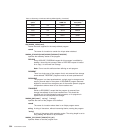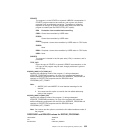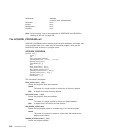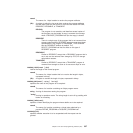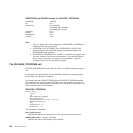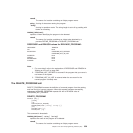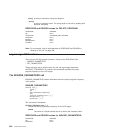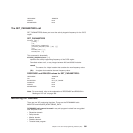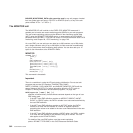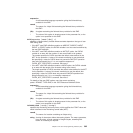RESPONSE REASON
CATALOG_NOT_OPERATIONAL
DISASTER None
INVALID None
KERNERROR None
PURGED None
Note: For more detail, refer to the explanation of RESPONSE and REASON in
“Making an XPI call” on page 308.
The ACQUIRE_PROGRAM call
ACQUIRE_PROGRAM returns the entry and load point addresses, the length, and
a new program token for a usable copy of the named program, which can be
identified by either its name or a program token.
ACQUIRE_PROGRAM
DFHLDLDX [CALL,]
[CLEAR,]
[IN,
FUNCTION(ACQUIRE_PROGRAM),
{PROGRAM_NAME(name8 | string | ’string’)|
PROGRAM_TOKEN(name4)},
[SUSPEND(NO|YES),]]
[OUT,
ENTRY_POINT(name4 | (Ra)),
[LOAD_POINT(name4 | (Ra)),]
[NEW_PROGRAM_TOKEN(name4),]
[PROGRAM_ATTRIBUTE(name1 | (Rn)),]
[PROGRAM_LENGTH(name4 | (Rn)),]
RESPONSE(name1 | *),
REASON(name1 | *)]
This command is threadsafe.
ENTRY_POINT(name4 | (Ra))
returns the program’s entry point address.
name4
The name of a 4-byte location to receive the 31-bit entry address
(Ra) A register to receive the entry address.
LOAD_POINT(name4 | (Ra))
returns the program’s load point address.
name4
The name of a 4-byte location to receive the loaded address
(Ra) A register that is to contain the load address.
NEW_PROGRAM_TOKEN(name4)
returns the new program token for a usable copy of the named program.
name4
The name of a location to receive a 4-byte token that identifies this
program and instance.
PROGRAM_ATTRIBUTE(name1 | (Rn))
returns the program attribute.
356 Customization Guide



